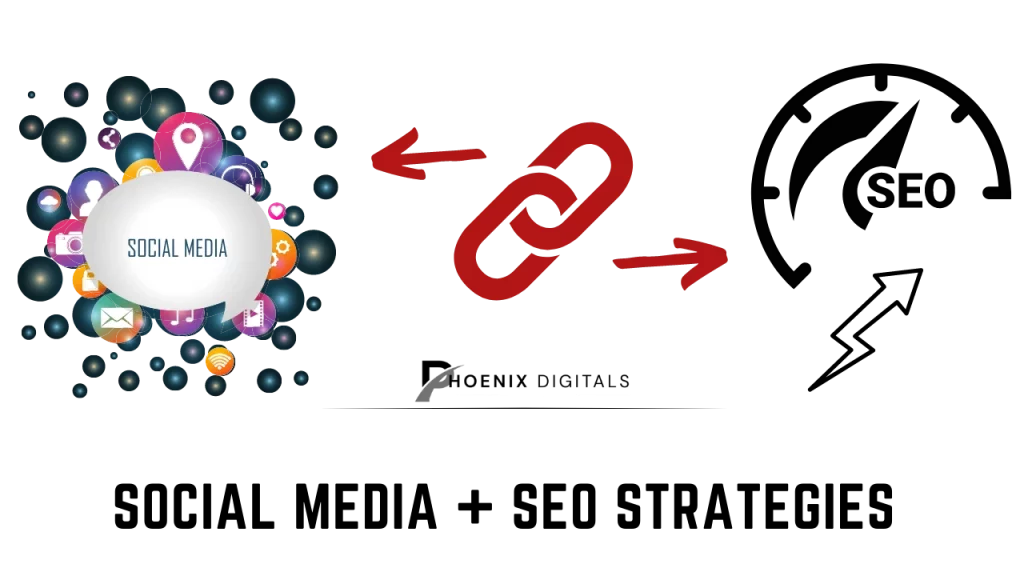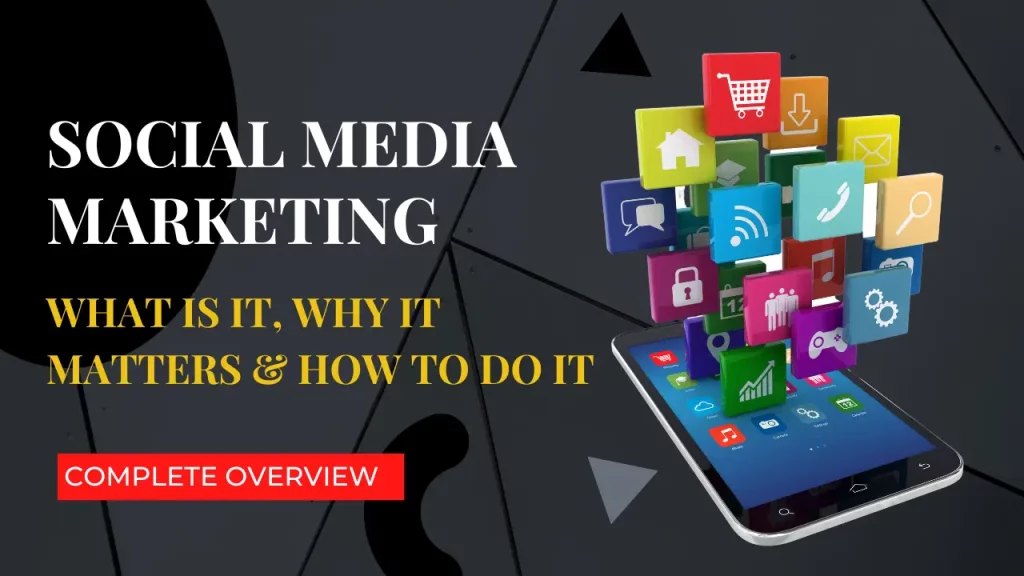With millions of active users on social media platforms like Facebook, Twitter, and Instagram, it has become essential for businesses to incorporate social media into their SEO strategies.
According to recent statistics, social media significantly impacts search engine optimisation (SEO) rankings. Fifty per cent of the companies struggling with SEO need to incorporate social media into their strategies.
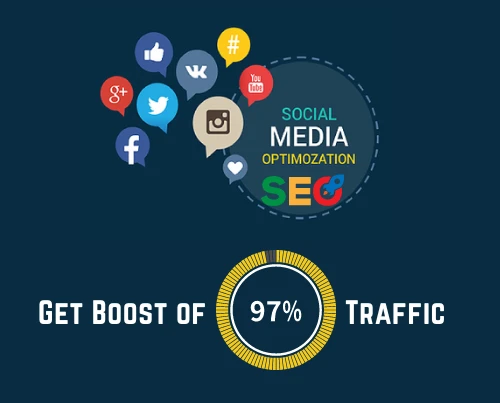
Incorporating social media into SEO strategies helps improve search engine rankings, boosts brand awareness, increases website traffic, and enhances customer engagement.
In this blog post, we will discuss the value and benefits of incorporating social media into your SEO strategy to reach the maximum traffic potential for your business.
SEO VS Social Media
SEO (Search Engine Optimization) and social media are crucial to a comprehensive digital marketing strategy. While they serve different purposes, they complement each other in achieving common goals, such as driving traffic to a website, increasing brand awareness, and improving customer engagement.
SEO focuses on optimising a website’s content and structure to increase its visibility and rank higher in search engine results pages (SERPs). This involves keyword research, on-page optimisation, link building, and other tactics to improve the website’s relevance and authority in the eyes of search engines.
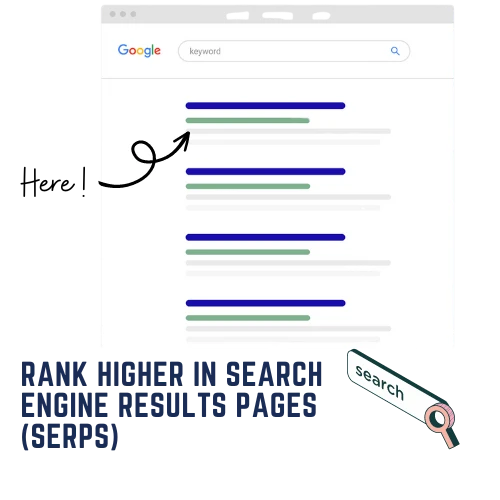
On the other hand, social media is all about creating and sharing content on various social media platforms to reach a wider audience, build brand recognition, and foster relationships with customers.
Social media platforms like Facebook, Twitter, LinkedIn, and Instagram offer unique opportunities to engage with your target audience and build a community around your brand.
When it comes to incorporating social media into SEO strategies, there are several ways to leverage social media to improve your website’s visibility and rankings.
For instance, you can use social media to promote your website content, encourage social sharing, and attract backlinks from authoritative websites.
You can also use social media to research keywords, monitor brand mentions, and gather insights about your target audience’s behaviour and preferences.
Why Is Social Media Important For SEO?
Statista said social media was the second largest source of website referral traffic in 2020, accounting for 18.9% of all website traffic. Social media and SEO work together like a well-oiled machine; the better you can use them in tandem, the more successful your website will be. But why is social media so important for SEO performance? Social media can help boost your website’s visibility, build user credibility and trust, and increase engagement.

Backlinks
One of the most important aspects of SEO is building high-quality backlinks to help Google understand what your web pages are about.
And one of the easiest ways to do this is by creating content people want to share on social media.
When other websites link to your content through their profiles or pages, it helps show Google that your website is trustworthy and credible.
This also helps boost your search engine rankings because it increases the number of times your website has been shared on other platforms.
User Engagement
Social media can also increase user engagement with your website, another important factor for SEO performance. The more time visitors spend on your site, the more likely they will return or purchase from you.
If visitors comment or share content from your website on their profile pages or in discussion threads—which often happens when people engage with content—it helps show Google that people find value in visiting and using your website.
Brand Awareness
Social media also helps build brand awareness among potential customers who may still need to learn what you offer.
Using different platforms such as Twitter and Instagram to reach new audiences, you can establish yourself as an authority in whatever industry you work in a while directing potential customers towards visiting (and eventually buying from) your site.
This can also inform existing customers about products or services they may want to purchase from you.
11 Best Strategies To Incorporate Social Media Into SEO
Here are 11 effective strategies to incorporate social media into your SEO efforts:
Choose The Right Social Media Platform
Choosing the right social media platform is crucial when incorporating social media into your SEO strategies. Begin by understanding your target audience’s demographics and interests, as this will guide you in selecting platforms where they are most active.
For example, Instagram and TikTok cater to younger, visually-oriented users, while LinkedIn is ideal for professionals and B2B marketing. Facebook and Twitter, on the other hand, offer broader appeal across age groups and interests.
Optimise Your Social Media Profiles
Optimising your social media profiles is essential to incorporating social media into your SEO strategies. Statistics show that brands with well-optimized profiles have higher engagement and visibility on search engine results pages.
There were over 4.2 billion social media users worldwide, making it a powerful tool for brand promotion.
The report revealed that 60% of internet users research products and services on social media, highlighting the importance of an optimised profile.

A well-optimized social media profile should include strategic keywords that resonate with your target audience.
Ensuring your profile has accurate contact information, a high-quality profile image, and a recognisable username can significantly impact engagement.
A study by Sprout Social revealed that 86% of consumers look for authenticity in the brands they follow on social media, emphasising consistency and accuracy across all profiles.
Consistent Branding Across All Platforms
Consistent branding across all platforms is paramount to creating a cohesive and memorable online presence. As an expert in SEO and social media integration, ensuring uniformity in brand identity, messaging, and visual elements is essential.
This consistency fosters trust and credibility among your audience and strengthens brand recall, driving increased engagement and conversions.
Consistent branding could lead to a 23% increase in revenue. Moreover, 82% of marketers believe brand consistency is crucial for success.
These statistics emphasise the importance of maintaining a harmonious colour palette, typography, and logo across all profiles and a unified tone and style in your content.
Use Relevant Hashtags

Using relevant hashtags is a powerful tactic to amplify your content’s reach and visibility on social media platforms, ultimately bolstering your SEO efforts.
Hashtags help categorise content, making it easily discoverable by users searching for specific topics or themes.
By incorporating targeted and industry-specific hashtags, you can connect with your desired audience and increase engagement rates.
Tweets with at least one hashtag receive 12.6% more engagement than those without hashtags.
This highlights the importance of strategically utilising hashtags to maximise your content’s potential. Be mindful of hashtag relevancy and avoid overusing them, as excessive use can negatively impact user experience and deter engagement.
Implementing this approach will enhance your brand’s online presence and improve your SEO.
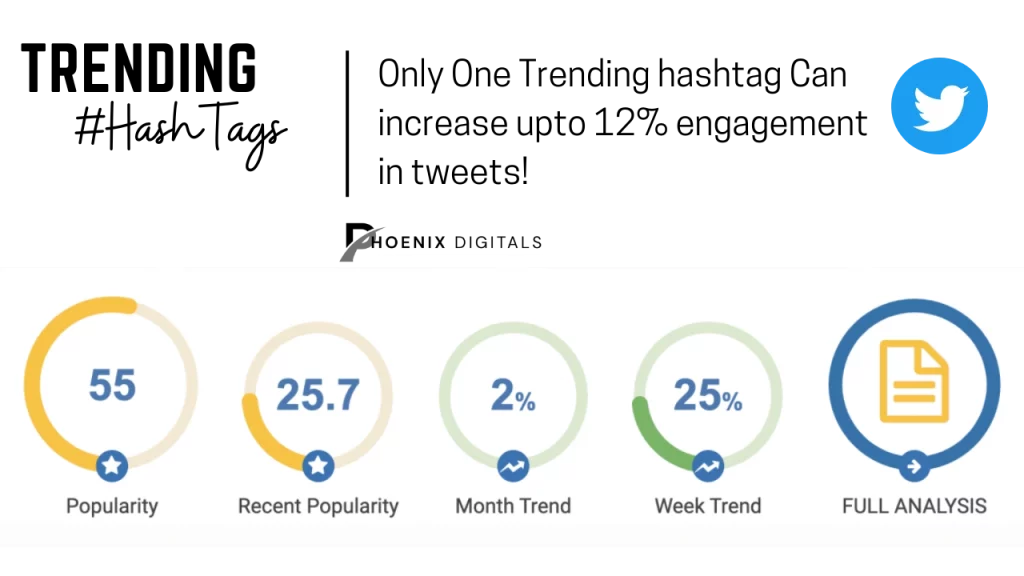
Share Quality Content Regularly
Sharing quality content regularly is vital to establishing and maintaining a strong online presence, as it directly impacts audience engagement and brand visibility.
Providing valuable and relevant content fosters trust among your followers and encourages them to share your posts, increasing your brand’s reach and generating valuable backlinks.
This, in turn, enhances your SEO performance and contributes to higher search engine rankings.
Companies that published 16 or more blog posts per month received 3.5 times more traffic than those publishing only 0-4 posts. This underscores the significance of consistent content creation and sharing.
By incorporating a diverse mix of content types, such as articles, infographics, videos, and user-generated content, you can cater to various audience preferences and ensure sustained engagement.
To maximise the impact of your content, ensure it aligns with your target audience’s interests and addresses their needs or pain points.
Use an authentic tone and incorporate storytelling techniques to create a connection with your audience, fostering brand loyalty and encouraging social sharing.
Encourage Engagement
Posts with higher engagement rates receive 3.5 times more reach on Facebook.
Active interaction with your audience through likes, comments, shares, and direct messages strengthens your online presence and fosters trust and brand loyalty.
Inviting user participation can create a vibrant online community around your brand, increasing brand awareness and visibility.
To stimulate engagement, craft compelling content that resonates with your audience and elicits an emotional response.
Ask questions, share thought-provoking ideas, and utilise various content formats such as polls, quizzes, and live videos to encourage participation.
Promptly respond to comments and messages, demonstrating your commitment to customer satisfaction and building strong relationships with your followers.
As your engagement rates increase, search engines will recognise your content’s relevance and value, positively influencing your rankings.
Build Relationships With Influencers

Building relationships with influencers can significantly boost your SEO efforts and brand visibility. Here are key points to consider:
- 80% of marketers find influencer marketing effective. Partnering with influencers helps tap into their loyal following, expanding your audience.
- Influencers have established trust among their followers. A Nielsen study shows that 92% of consumers trust peer recommendations over advertising, making influencer endorsements invaluable.
- Influencer collaborations can generate high-quality backlinks, contributing to better search engine rankings.
- Influencers often create unique content, providing you with shareable material that resonates with their audience, further improving your SEO performance.
Share User-Generated Content
UGC refers to any content created by your customers or followers, such as reviews, photos, videos, or testimonials.
By featuring this content on your social media channels, you demonstrate appreciation for your audience and showcase real-life experiences with your products or services.
The significance of UGC is backed by a Stackla survey, which revealed that 79% of consumers say user-generated content highly impacts their purchasing decisions. This statistic highlights the power of UGC in building trust and influencing potential customers.
Incorporating UGC into your social media strategy can also improve your SEO performance, as it generates organic backlinks and increases engagement rates.
Monitor Your Social Media Analytics
Monitoring your social media analytics is critical to incorporating social media into your SEO strategies. By tracking and analysing your performance metrics, you can identify which content resonates best with your audience, gain insights into user behaviour, and optimise your marketing efforts accordingly.
Key evaluation metrics include engagement rates (likes, comments, and shares), click-through rates, follower growth, and reach. These indicators can provide valuable information about the effectiveness of your content, allowing you to fine-tune your approach and maximise results.
Additionally, keeping an eye on your referral traffic from social media platforms to your website can help you understand the impact of your social media efforts on your overall SEO performance. This information can guide you in creating content that drives users to your site, generating valuable backlinks and boosting your search engine rankings.
Use Social Media Advertising
In 2020, ad spending on US social networks will exceed $40 billion, projected to reach $49 billion by 2021. Here are key points to consider when incorporating social media advertising into your marketing efforts:
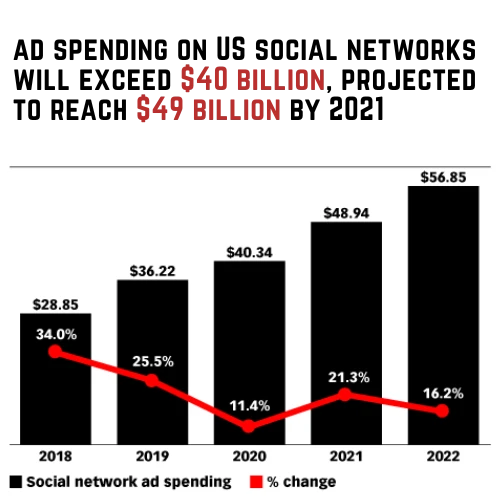
- Diverse platforms: Focus on the most relevant social media platforms for your target audience. Popular options include Facebook, Instagram, LinkedIn, Twitter, Pinterest, and TikTok.
- Advanced targeting: Social media advertising platforms offer sophisticated targeting options, allowing you to reach specific demographics, interests, behaviours, and even custom audiences based on your existing customer database.
- Cost-effectiveness: Many social media advertising platforms operate on a pay-per-click (PPC) or pay-per-impression (PPI) basis, making it easy to control your ad spend and maximise your return on investment (ROI).
- A/B testing: Experiment with different ad formats, images, headlines, and call-to-action (CTA) buttons to identify the most effective combinations for your target audience.
- Analytics and optimisation: Utilize built-in analytics tools to track the performance of your ads, such as impressions, clicks, and conversions. Use these insights to optimise your campaigns and improve your results.
- Boost organic reach: Paid advertising can complement your organic social media efforts, as increased engagement on your ads can lead to more shares, likes, and comments, ultimately boosting your organic reach.
- Retargeting: Implement strategies to re-engage users who have previously interacted with your website or content, increasing the likelihood of conversions.
- Drive website traffic: Use social media advertising to promote your website’s content, generating valuable backlinks and improving search engine rankings.
Measure Your Social Media ROI

Measuring your social media ROI is crucial for evaluating the effectiveness of your social media and SEO strategies. ROI refers to the return on investment, which indicates the efficiency and profitability of your marketing efforts.
By tracking ROI, you can identify which tactics drive results, allocate resources more effectively, and justify your marketing spend.
44% of businesses don’t feel confident in measuring social media ROI. To overcome this challenge, establish clear goals and key performance indicators (KPIs) to track your progress. KPIs may include follower growth, engagement, website traffic, and conversion rates.
Frequently Asked Questions (FAQs)
How Does Social Media Help To Boost SEO?
Social media enhances SEO by increasing brand visibility, generating backlinks through shares, and driving targeted traffic to your website.
How Do I Make Social Media Content More SEO-Friendly?
Create high-quality, keyword-optimized content that encourages engagement and utilises relevant hashtags to improve discoverability and reach.
How Do You Integrate Social Media Into Content Strategy?
Incorporate social media platforms into your content distribution plan, and create platform-specific content that aligns with your overall marketing objectives and target audience.
Closing Thoughts: Effective Integration of Social Media and SEO Strategies
As a business owner, marketer, entrepreneur, blogger, or content creator, it’s time to take advantage of the powerful synergy between social media and SEO.
Partner with Phoenix Digitals, your trusted digital marketing partner, to optimise your online presence and propel your brand to new heights.
Don’t miss this opportunity to grow your audience, increase engagement, and drive conversions. Contact us today to kickstart your social media and SEO journey!

